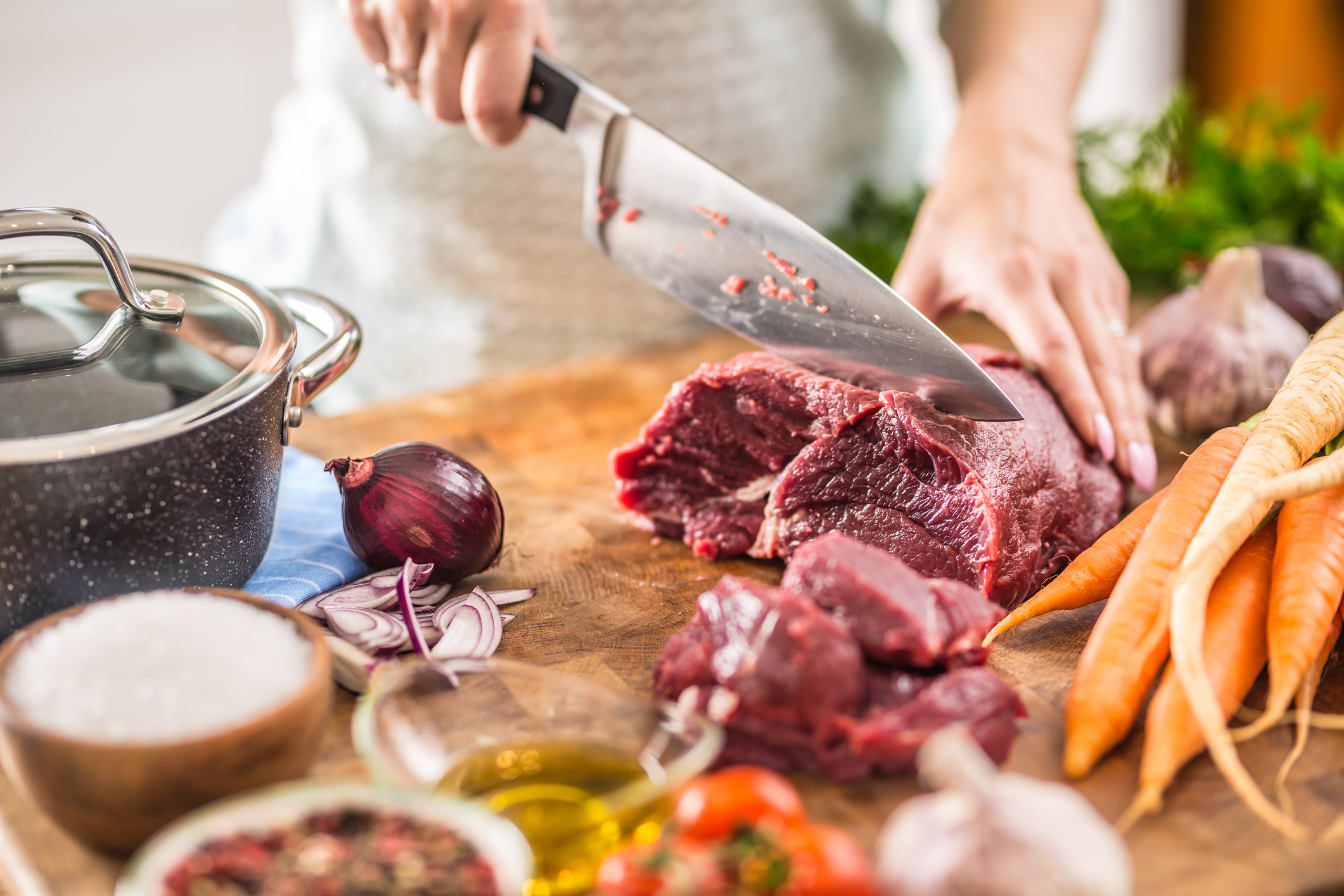

The colon is the “last stop” in your digestive system, so it stands to reason that the food we put in our mouths can significantly impact the organ’s health.
If we don’t take care of it, we can get very sick, and the most feared outcome for most of us is likely colon cancer.
There are foods that research tells us can elevate colon cancer risk, and then there are foods that could reduce that risk…
One study of 80,000 men found that those who ate the highest average daily amounts of healthy plant-based foods had a 22 percent lower risk of colon cancer when compared to those who ate the lowest amounts.
And not long ago, scientists found that eating red meat leads to cancer-causing genetic mutations in the tissue of the colon, something not seen in people who primarily eat chicken, fish, or plant-based diets.
Now, a large-scale study has discovered that if you’re a person with a particular genetic profile, you’re at even greater risk of developing colon cancer than most people if you keep eating red meat.
Genes can take red meat’s cancer risk up to 40 percent
Researchers at the Fred Hutchinson Cancer Center in Seattle compiled data from 27 studies of colorectal cancer risk in people of European origin.
Before even looking at genetic risk, they found that people who ate the highest amounts of red meat had a 30 percent increased risk for colorectal cancer. That risk jumped to 40 percent greater for those with the highest consumption of processed meat (hot dogs, sandwich meat, etc).
Then, when they dove into gene variants (over seven million of them!), their analysis turned up two specific SNPs (single nucleotide polymorphisms, or specific locations on a specific gene) that were associated with increased risk for meat eaters:
- People with a common variant of the HAS2 gene, involved in processing protein, faced a 38 percent higher risk of colorectal cancer if they consumed the highest level of meat. This variant is found in about 66 percent of the population.
- The SMAD7 gene regulates hepcidin, a protein linked to iron metabolism. People with two copies of a variant of this gene face an 18 percent higher risk of colorectal cancer if they eat high levels of red meat. And one copy of this variant raises the risk to a whopping 35 percent.
“These findings suggest that there’s a subset of the population that faces an even higher risk of colorectal cancer if they eat red or processed meat,” said lead author Mariana C. Stern, Ph.D., a professor of population and public health sciences and urology, the Ira Goodman Chair in Cancer Research and the associate director for population science at the USC Norris Comprehensive Cancer Center.
Take colon cancer risk down, genes or not
Dr. Stern cautions that these findings don’t provide a causal link between genetic variants and colon cancer.
“This gives us some important food for thought,” she says. “We do these gene-environment interaction studies when we know there’s a clear association between an environmental exposure and a disease, but what happens in between is still a black box.”
Dr. Stern hopes to follow up with experimental studies that may provide stronger evidence of the role of dysregulated iron metabolism in the development of colorectal cancer.
In the meantime, even if you have a genetic risk of colorectal cancer, it’s clear that eating the right foods and avoiding the wrong ones could cut your risk. And research shows that this is especially true for men.
Start by adding these powerful greens to your diet…
Trade some of that red meat for spinach. More than one study has shown spinach’s power to make gut changes that reduce the risk of colorectal cancer, even when it’s genetically “programmed.”
Learn to love broccoli. Broccoli contains sulforaphane, a naturally occurring compound that protects against prostate, colon, lung and breast cancer.
Add probiotics to the mix. When paired with broccoli, this combo may be even more powerful at keeping cancer cells at bay.
Sources:
Large-scale study explores genetic link between colorectal cancer and meat intake — Medical Express
Genome-Wide Gene–Environment Interaction Analyses to Understand the Relationship between Red Meat and Processed Meat Intake and Colorectal Cancer Risk — Cancer Epidemiology, Biomarkers & Prevention
Red meat consumption may promote DNA damage-associated mutations in patients with colorectal cancer — Medical Express